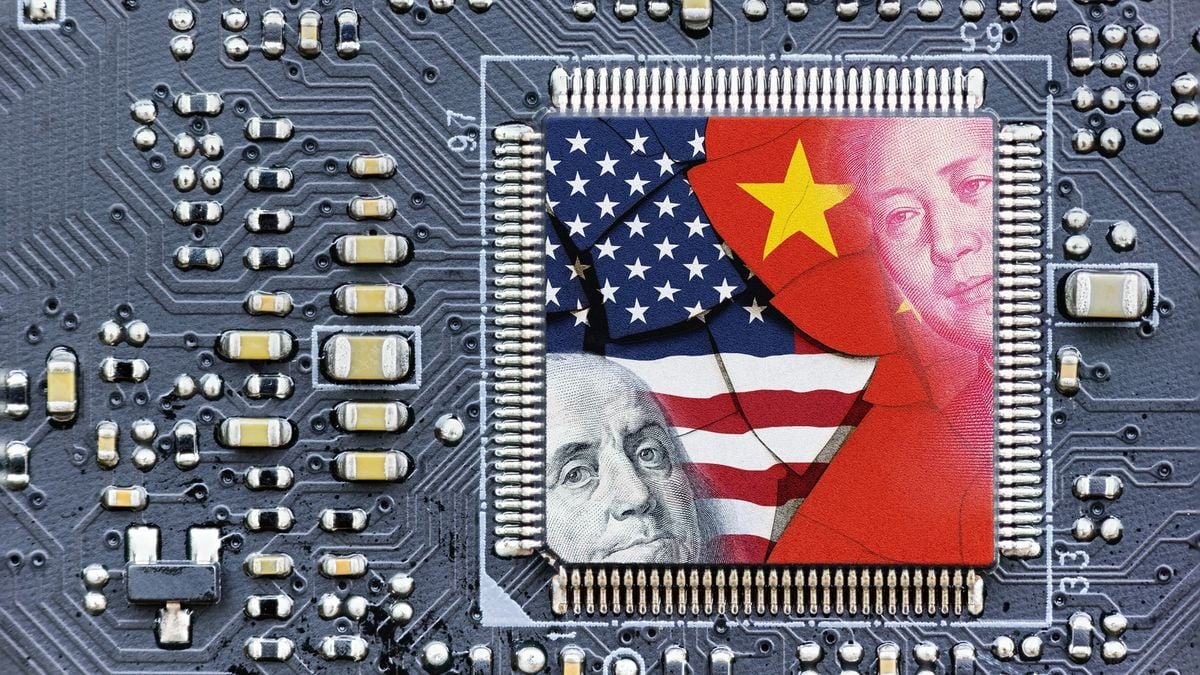A contributing factor in all of this is that US manufacturers have spent the better part of the last 30 years turning their engineering departments into glorified parts replacers. A complaint I have heard from nearly every electrical/electronics engineer that I’ve known is that “We don’t design things anymore. Now we just spend most of our time trying to find replacements for chips that we can no longer get.”
From what I can tell, from my very limited perspective, there has been a significant lack of investment in engineering capabilities and a resulting lack of innovation for a long time. As usual, short term thinking is expensive in the long run. We’re only just beginning to find out how expensive.
I’ve tried explaining to people that I think the best way to fight globalization is a well educated population. Then the theory is, we’d be able to make more domestic advancements that other countries would have to try and keep up with.
So that’s right up the alley of the incoming administration then?
It’s pretty spot on. It takes years to get a fab up to speed, and they’ve been stealing US IP shipped over there for manufacturing for over a decade. They’ll try to annex Taiwan, and the US will be fucked. Jokes on them though, because TSMC has remote self destructive capabilities for their operations.
China will not invade Taiwan. They might try to invade a country like the Philippines, almost crash the world economy but more than anything their own country in the process and realize Taiwan is completely out of reach.
China has terrible demographics, a real estate mark that is in free fall, high debt, is the target of tariffs in every major economy and a domestic market that can’t consume what they produce.
Economically they are fucked unless the US and EU throw them a life line and allow them to dump products in their market again… which is not going to happen no matter which party is in control. The best they can hope for at this point is a Japanese style lost decade. But I doubt they can manage even that outcome.
Bottom line is the CCP will do whatever is in the best interest of the CCP staying in control of China. Even if that decision is terrible for China itself.
If they are backed into a corner it doesn’t matter that Taiwan is out of reach. All that matters is that the CCP stays in control.
That is what makes this next ten years very dangerous.
It’s like a nonviolent alternative to nuclear war. Mutually assured destruction of bleeding edge technologies instead of death.
TSMC won’t destroy itself. If the US destroys TSMC on its way out, that will crush the global economy.
Man, I love how people give no agency to companies like this. Mainly because it shows they’re entirely ignorant of the state of the world outside of their very limited knowledge and incorrect beliefs about it.
It’s a no-win for them.
They lose the war and pull the trigger, and everyone from the janitor on up is prosecuted by the PRC as saboteurs.
They win the war and have blown up the factory? Goodbye #1 export product.
Its only value is as a hindrance to peaceful negotiation. The threat is actually more useful as a “we’ll pull the plug if you abandon your defence commitments” rather than “we’ll pull the plug when attacked”. That bludgeon prevents Western powers from seeking a managed, Hong Kong/Macao sryle reunification strategy.
Wow, you’re either not very smart, or are not aware of the state of the world.
Thanks for sharing this link, and I wonder if you could be nicer in your replies in the future
This is extremely funny and cartoonish. No one would benefit from this. As I said, the whole world would suffer.
Also, TSMC exists to make money. The Chinese government has overseen the largest economic growth of this century and would change little about the company’s daily operations.
The people who want this outcome of TSMC being destroyed are not Chinese or Taiwanese, they’re American. Like I said, it would be the Americans ordering the destruction of TSMC during reunification, as it was likely their idea to create these self-destruct mechanisms in the first place. Some ally we Americans would be if on our way out we crippled Taiwanese industry and sabotaged the world economy.
What the taiwanese want is sovereignty.
The threat of blowing up TSMC if invaded helps with their sovereignty because it both avoids the Chinese attacking them and helps the Americans defend them.
Well, not “crush”, but I suppose the “AI” hype and that of cryptocurrencies will stop to think for 5 years or so.
I’m looking forward to this. Some incentive for developers to stop expecting faster machines every month is welcome.
China has their in-house Longson chip and can use Risc-v. This has the potential of accelerating a switch from x86/arm to more open standards.
China’s biggest hurdle is not the ability to make a chip, but more the ability to get good yields. It’s more or less running into the same problem Intel did with 10nm, and what samsung has and the main reason why basically every chip maker is behind tsmc on bleeding edge.
This has the potential of accelerating a switch from x86/arm to more open standards.
hardware is a two way street, the other is getting a proper OS environment and people to be behind said projects. It’s not like RISC-V designs aren’t currently available.For example, Pine64’s risc-v options have been available in the market for quite some time now. And DeepComputing is trying to release its framework laptop equivalent board using a StarFive JH7110. It will only accelerate if there is a bodies available to create the ecosystem in it, and as of the moment, not many developers are putting effort into making it an ecosystem.
An example of why hardware/software need to coexist is Snapdragon X Elite on Linux, as well as Asahi Linux(Arm based Macs on Linux). Neither are complete projects and do not hit the same performance their native OS versions hit yet remotely(nor efficiency). Theres a LOT you have to do to optimize hardware to the OS, and that just doesn’t happen instantly.




